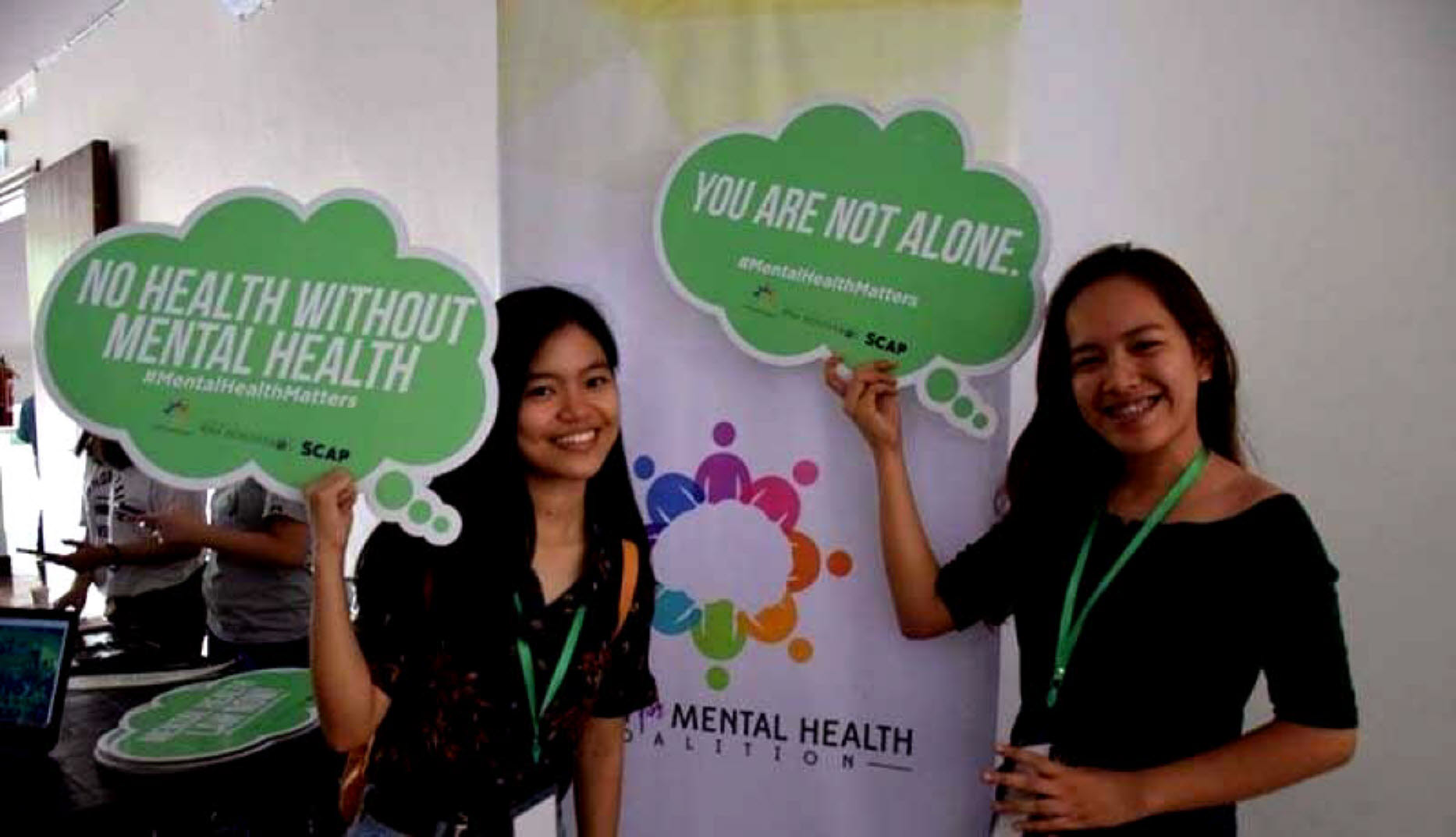
#Transgender or #gender-nonconforming #adolescents may have increased risk for various #mentalhealthchallenges, according to results of a cross-sectional survey study published in JAMA Network Open.
#JamesDonaldson notes:
Welcome to the “next chapter” of my life… being a voice and an advocate for #mentalhealthawarenessandsuicideprevention, especially pertaining to our younger generation of students and student-athletes.
Getting men to speak up and reach out for help and assistance is one of my passions. Us men need to not suffer in silence or drown our sorrows in alcohol, hang out at bars and strip joints, or get involved with drug use.
Having gone through a recent bout of #depression and #suicidalthoughts myself, I realize now, that I can make a huge difference in the lives of so many by sharing my story, and by sharing various resources I come across as I work in this space. #http://bit.ly/JamesMentalHealthArticle
“Research has shown that a significant proportion of #adolescents with #gender dysphoria have a history of other psychiatric diagnoses,” Yuanyuan Wang, PhD, of the department of psychiatry at the Second Xiangya Hospital of Central South University in #China, and colleagues wrote. “There are also a number of studies reporting a high percentage of #suicidalideation, self-harm and #suicide attempts in #adolescents with #gender dysphoria. Compared with their cisgender peers, [#transgenderornonconformingyouth] (#TGNC) #youth are more likely to report #mentalhealthproblems such as #anxiety, #depression and #suicidalideation.

“Moreover, within the school environment, #transgender #adolescents are vulnerable to harassment and bullying,” they added.
To the researchers’ knowledge, no school-based surveys have examined the prevalence and #mentalhealth status of #TGNC #adolescents in mainland #China. In the current study, Wang and colleagues sought to compare the #mentalhealth status of #TGNC #adolescents in #China with that of their cisgender peers. They analyzed questionnaire data of 12,108 #adolescents from 18 secondary #schools in one city in #China. Participants completed the Patient Health Questionnaire to measure depressive symptoms, a generalized #anxiety disorder screening, the Pittsburgh Sleep Quality Index and a risk checklist for self-harm and #suicide. The researchers also measured the frequency of being bullied at school. They classified participants who reported their perceived #gender as the opposite of their assigned sex at birth as #transgender, those who identified as neither #male nor #female as nonbinary and those who were unsure of their perceived #gender as questioning. All participants were considered #TGNC #adolescents.
A total of 6,518 participants were assigned #male at birth, of whom 3.2% were classified as #transgender #girls, 2.1% as nonbinary #youth assigned #male at birth and 4.9% as questioning #youth assigned #male at birth. A total of 5,590 participants were assigned #female at birth, of whom 15.4% were classified as #transgender #boys, 2% as nonbinary #youth assigned #female at birth and 8.5% as questioning youth assigned #female at birth. Wang and colleagues observed significantly higher health concerns among #TGNC #adolescents vs. cisgender adolescents. These included lower overall health, poorer sleep, higher #depression and #anxiety symptoms and higher rate of self-harm and suicide ideation. #TGNC youth who were assigned male at birth had an increased risk for experiencing bullying vs. cisgender boys. Further, #TGNC groups also had significantly greater amounts of thoughts of self-harm, thoughts of #suicide, #suicide plan formation, deliberate self-harm during the last month and attempts of #suicide compared with cisgender #boys.
“The findings indicate the need for researchers, practitioners and policy makers to address these #mentalhealth risks,” Wang and colleagues wrote. “School-level intervention is recommended to support the well-being and equity of #gender #minority #youth.”
In a related editorial, Brian C. Thoma, PhD, of the department of psychiatry at the University of Pittsburgh School of Medicine, and Sophia Choukas-Bradley, PhD, of the department of psychological and brain sciences at the University of Delaware, provided a path forward for obtaining needed data on this global health issue.
“Our knowledge about the scope of this public health problem, including the potential psychosocial antecedents of impoverished #mentalhealth outcomes among #transgender #youth, continues to be inhibited by inadequate measures of #genderidentity in our highest-quality surveys of #adolescent health,” they wrote. “It is imperative that representative surveys of #adolescents around the world implement comprehensive measures of sex assigned at birth and #genderidentity. This would provide robust data on the #mentalhealth and psychosocial experiences of #transgender #youth at the population level, affording researchers more of the tools they need to begin to develop and implement effective treatments to reduce the burden of #mentalhealthproblems within this vulnerable population around the globe.”

James Donaldson is a Washington State University graduate (’79). After an outstanding basketball career with WSU, he went on to play professional basketball in the NBA with the Seattle Supersonics, San Diego/L.A. Clippers, Dallas Mavericks, New York Knicks, and Utah Jazz. He also played for several teams in the European Leagues in Spain, Italy, and Greece, and he toured with The Harlem Globetrotters to wrap up his career. James was an NBA All-Star in 1988 while playing center for the Dallas Mavericks. In 2006, James was inducted into the Pac-10 Sports Hall of Fame and also the Washington State University Athletic Hall of Fame. In 2010, James was elected as a board member for the NBA Retired Players Association.
James frequently conducts speaking engagements (motivational, inspirational, educational) for organizations, schools, and youth groups.
In 2010, James was the recipient of the NBA Legends of Basketball ABC Award, awarded for outstanding contributions in Athletics–Business–Community.
He believes in being a role model for success and professionalism to the scores of young people to whom he devotes so much of his time. He currently serves on several boards and committees and is a member of many organizations.
James believes in developing relationships that create a “Win-Win” environment for everyone involved, and in being the best he can be!
For more information about James Donaldson or to request he speak at your event, contact him at:
www.StandingAboveTheCrowd.com
JamesD@StandingAboveTheCrowd.com
1-800-745-3161 (voicemail & fax)
James Donaldson is the author of “Standing Above The Crowd” and “Celebrating Your Gift of Life” and founder of the Your Gift of Life Foundation which focuses on mental health awareness and suicide prevention, especially pertaining to our school aged children and men.
If you’re interested in having James come and speak to your group of young adults, business entrepreneurs, aspiring political and community leaders, and athletic teams, please contact him at jamesd@yourgiftoflife.org and or leave a personal message for him at 1-800-745-3161. Keep up with him and read about how he is reaching out and making a difference in the lives of so many around the world at www.yourgiftoflife.org



